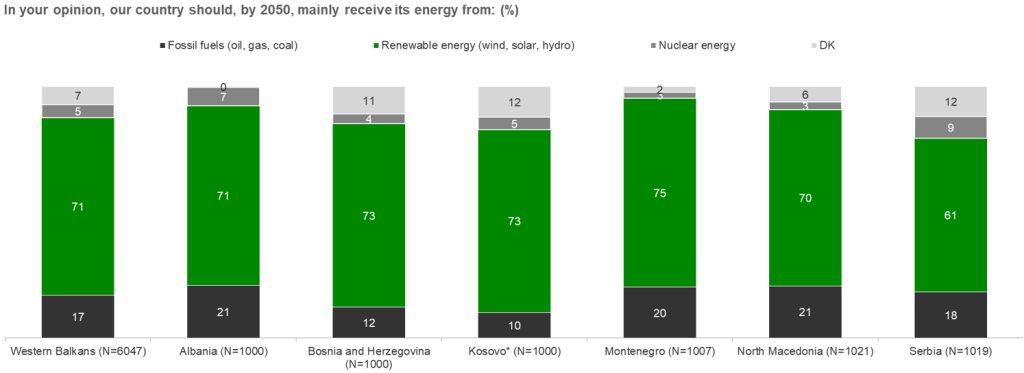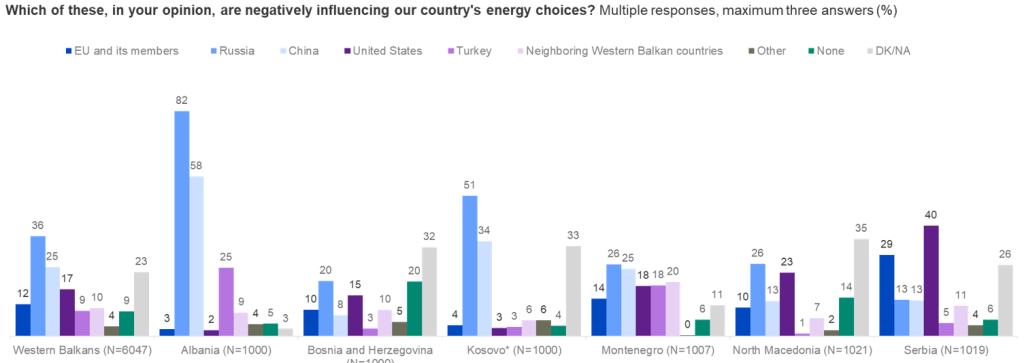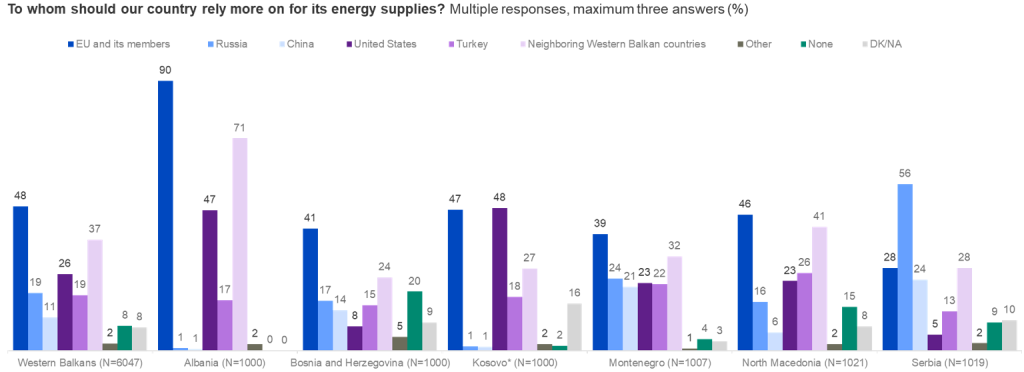The EU has invested considerable resources in the promotion of renewable energy in the Western Balkans, yet countries in the region continue to rely on coal to meet their energy needs. Drawing on a new survey, Nikolaos Tzifakis and Tena Prelec explain that while people in the Western Balkans are strongly in favour of using renewables, they also tend to support foreign investments that are delaying the transition to green energy.
While EU member states are making strides towards the green energy transition, the Western Balkans continues to rely heavily on outdated coal-fired power plants, resulting in lethal emissions that far exceed permitted limits. The consequences are dire, with rising premature deaths and severe health problems plaguing the region.
To gauge public opinion on energy policies in the region, the Balkans in Europe Policy Advisory Group (BiEPAG) conducted a regional survey in the six Western Balkan countries in March-April 2023. The survey indicated there is widespread support for the green transition in the region.
An overwhelming 71% of respondents believed their countries should primarily derive energy from renewable sources by 2050 (see Figure 1). Equally encouraging, a similar proportion of participants (67%) supported increased investment in domestic renewable energy sources as a response to the energy crisis.
Figure 1: Sources from which Western Balkan countries should receive energy by 2050
Note: For more information, see the accompanying research published by the Balkans in Europe Policy Advisor Group (BiEPAG).
However, a concerning trend emerges when it comes to public perceptions of external actors and their influence on the region’s energy transition. These perceptions seem to have been coloured by preconceived notions and wider beliefs about these countries.
For example, in Bosnia and Herzegovina, only 8% of respondents cited China as a negative influence, despite Beijing’s involvement with the country’s coal industry (Figure 2). In Serbia, a staggering 56% advocated increased reliance on Russia for energy, even though Gazprom’s monopoly in the gas market has hindered the diversification of supply (Figure 3). And in Kosovo, where an investment by a Turkish consortium in the electricity system raised controversy, only 3% of respondents identified Turkey as a negative influence (Figure 2).
Figure 2: Negative influence over a country’s energy choices
Note: For more information, see the accompanying research published by the Balkans in Europe Policy Advisor Group (BiEPAG).
These findings reveal a significant disconnect between the public’s overwhelming support for renewable energy and their failure to recognise the harmful influence of external actors invested in maintaining the status quo. Through their hold over the media, power holders construct a positive image of certain third powers that is instrumental in obscuring their main interests and, by extension, in shielding environmentally damaging deals from public scrutiny.
It is crucial to underscore that people in the Western Balkans predominantly draw information from local media, with most citing television as their primary source of information. As a result, local elites and their regime-friendly media outlets play a pivotal role in shaping public perceptions of third powers.
They control the narrative and may limit the dissemination of information that could challenge the existing status quo. Broadly speaking, local elites are not passive bystanders to the region’s severe energy outlook. They maintain the power to make decisions on behalf of their countries and bear the primary responsibility for the energy choices of the Western Balkans.
At the same time, the EU’s claim that it plays a positive role in the energy sector is not necessarily accepted. A case in point is Serbia. Although the EU is the greatest donor of financial assistance linked to the energy sector (€165 million as immediate support assistance in 2023 in addition to more than €1 billion to the sector since 2000), only 28% of Serbian respondents argued that their country should rely more on the Union for security of supply (Figure 3). In addition, 29% believed the EU exerts negative influence over Serbia’s energy choices, compared to only 13% holding negative views of Russia. Pro-Russian views are furthermore shared by Serbs across the region.
Figure 3: Reliance on energy supplies
Note: For more information, see the accompanying research published by the Balkans in Europe Policy Advisor Group (BiEPAG).
The survey revealed that 49% and 44% of respondents from Serbia and North Macedonia respectively believed the EU was demanding too much from their countries in terms of energy reforms (compared to 32% and 38% who thought it had adequate requirements or was asking for too little). In Kosovo, the public’s views on this issue were almost equally divided.
The survey findings demonstrate that EU policies are not fully understood or supported throughout the region. Put differently, the EU has not managed to make policy in the region in such a way that its prescriptions are widely endorsed. The EU practice of simply transposing its own energy policy priorities onto the Western Balkans does not appear to address the main political concerns on the ground, which relate to the affordability of energy and air pollution.
Taking into consideration the high level of economic insecurity and energy poverty in the region, the EU is perceived by many respondents to be demanding too much while offering insufficient assistance. It is also an open question whether responses to the survey may have reflected the public’s frustration with EU accession requirements. If this is the case, public support for EU-prescribed energy-related reforms may be negatively affected by the stalled EU enlargement process in the Western Balkans.
If the Western Balkans are to catch up with the rest of Europe in terms of the green energy transition, the public must be provided with accurate and comprehensive information about energy policies and foreign investments. Local elites must also be held accountable. Transparent decision-making is needed to help the region reach a sustainable and environmentally friendly future. Otherwise, the green aspirations of the public risk being undermined by hidden agendas, short-term interests and environmentally destructive geopolitical partnerships.
For more information, see the accompanying research published by the Balkans in Europe Policy Advisor Group (BiEPAG)
Note: This article gives the views of the authors, not the position of EUROPP – European Politics and Policy or the London School of Economics. Featured image credit: Bilanol/Shutterstock.com





